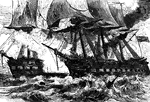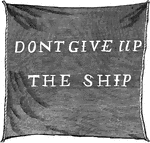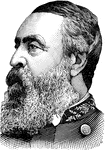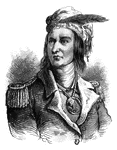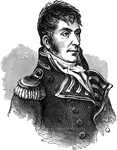
Jacob Jones
Commodore Jacob Jones (March 1768 - August 3, 1850) was an officer in the United States Navy during…

La Colle Mill and Blockhouse
The Second Battle of Lacolle Mills was fought on March 30, 1814 during the War of 1812. The small garrison…

The Battle of Lake Erie
The bay where Capt. Perry put his fleet in during the Battle of Lake Erie. Smoke of the battle can be…
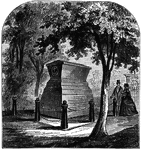
The Lawrence and Ludlow Monument
The monument dedicated to James Lawrence and Ludlow who fought in the War of 1812.
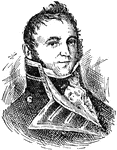
James Lawrence
(1781-1813) American naval officer who fought in the War of 1812, commanded the Peacock and the Chesapeake.…
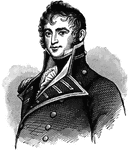
James Lawrence
James Lawrence (October 1, 1781 – June 4, 1813) was an American naval officer. During the War…
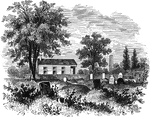
Site of British battery at Lundy's Lane
The Battle of Lundy's Lane was a battle of the War of 1812 on July 25, 1814, fought in present-day Niagara…
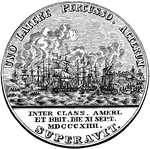
Macdonough's Medal
Thomas MacDonough (December 21, 1783 – November 10, 1825) was an early 19th-century American naval…
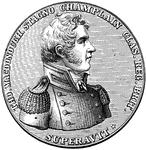
Macdonough's Medal
Thomas MacDonough (December 21, 1783 – November 10, 1825) was an early 19th-century American naval…
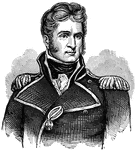
Thomas Macdonough
Thomas MacDonough (December 21, 1783 – November 10, 1825) was an early 19th-century American naval…
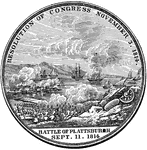
Macomb's Medal (back)
Following the Battle of Plattsburgh and the end of the War of 1812, a Congressional Gold Medal honoring…
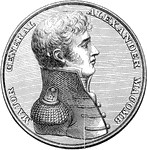
Macomb's Medal (front)
Following the Battle of Plattsburgh and the end of the War of 1812, a Congressional Gold Medal honoring…
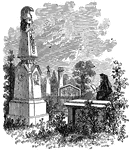
Macomb's Monument
The monument of Alexander Macomb in the Congressional Cemetery in Washington, D.C.
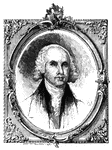
James Madison
"James Madison, a Republican with partiality towards France during the War of 1812."—E. Benjamin…

View of Malden in 1861, where the British ships were built
Malden, on the Detroit River, was a place of great importance during the War of 1812. It is where the…
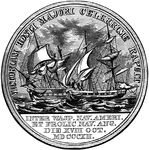
Gold Medal Awarded to Jacob Jones
The Congressional Gold Medal awarded to Commodore Jacob Jones. an officer in the United States Navy…
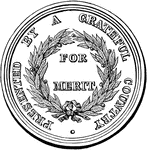
Medal of Gratitude (Back)
A medal of gratitude struck to celebrate the Treaty of Ghent ending the War of 1812.
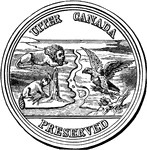
Medal of Gratitude (Front)
A medal of gratitude struck to celebrate the Treaty of Ghent ending the War of 1812.
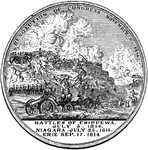
James Miller's Medal (Back)
In 1814, Miller was Colonel of the 21st Infantry Regiment and led his men in the capture of the British…
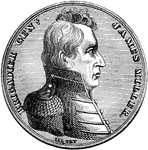
James Miller's Medal (Front)
In 1814, Miller was Colonel of the 21st Infantry Regiment and led his men in the capture of the British…
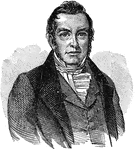
James Miller
James Miller (25 April 1776 - 7 July 1851) was a member of the United States House of Representatives…

Monroe, Michigan
During the War of 1812, there was a Massacre at Frenchtown. Winchester sent troops to Monroe to protect…
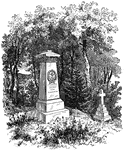
Charles Morris's Monument
Commodore Charles Morris, USN (1784 – 1856) was a U.S. naval administrator and officer whose service…
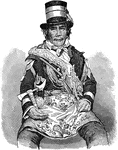
Oshawahnah
Tecumseh's deputy commander who led the Indians against American forces at the Battle of the Thames
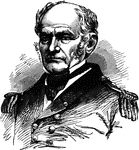
Hiram Paulding
Hiram Paulding (December 11, 1797 – October 20, 1878) was a Rear Admiral in the United States…

Perry Transferring His Colors
"Perry transferring his Colors from the Lawrence to the Niagra."—E. Benjamin Andrews, 1895
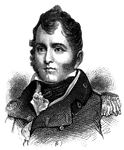
Oliver H. Perry
"Oliver H. Perry won the most brilliant naval battle on Lake Erie on September 10, 1813."—E. Benjamin…
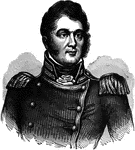
Oliver Hazard Perry
Commodore Oliver Hazard Perry (August 20, 1785 – August 23, 1819) was an officer in the United…

Battle of Plattsburg
The Battle of Plattsburgh, also known as the Battle of Lake Champlain, ended the final invasion of the…
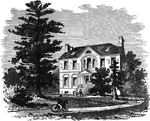
The Pringle House
During the War of 1812, when Cockburn landed in Havre de Grace, he was met by several ladies who had…

Queenston in 1812
The Battle of Queenston Heights was a British victory during the War of 1812 which took place on October…
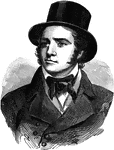
Samuel Chester Reid
Samuel Chester Reid (24 August 1783 – 28 January 1861) was an officer in the United States Navy…

Commodore John Rodgers
John Rodgers was an American naval officer who served in the United States Navy from its organization…
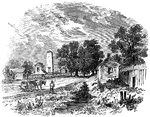
Remains of Rodriguez's Canal in 1861
The Battle of Rodriguez's Canal was a prelude to the Battle of New Orleans that occurred near New Orleans…

Sackett's Harbor in 1812
The Battle of Sackett's Harbor took place on May 29, 1813, during the Anglo-American War of 1812.
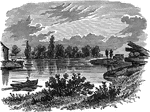
Landing Place of Troops on the Salmon River
General Wilkinson settled into winter quarters at French Mills on the Salmon River during the War of…

Place of Battle at Sandy Creek
The Battle of Big Sandy Creek was fought in northwestern New York on May 29 – May 30, 1814, during…
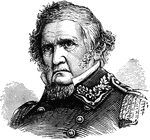
Lieutenant General Winifred Scott
Lieutenant General Winifred Scott, a long-serving US Army officer who ran unsuccessfully for president…
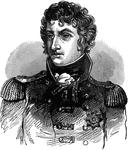
Sir John Coape Sherbrooke
Sir John Coape Sherbrooke (baptised April 29, 1764 – February 14, 1830) was a British soldier…
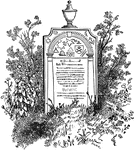
Melanchton Smith's Monument
The monument dedicated to Colonel Melanchton Smith (1780-1818) who fought in the War of 1812.
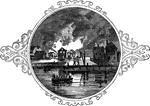
Destruction at Sodus Bay
During the War of 1812 Sodus Bay was mostly burned during an attack by the British.

Battleground of Stony Creek
The Battle of Stoney Creek was fought on June 6, 1813, during the War of 1812 near present day Stoney…
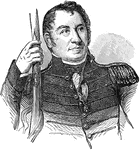
John Stricker
John Stricker (1758-1825) was a Maryland militia officer who fought in both the American Revolutionary…
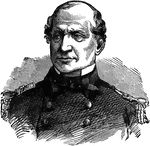
Silas Horton Stringham
Silas Horton Stringham (7 November 1798 - 7 February 1876) was an admiral in the United States Navy.
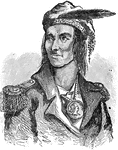
Tecumseh
Tecumseh (March 1768 – October 5, 1813), also Tecumtha or Tekamthi, was a famous Native American…

Appearance of the Thames Battle Ground in 1860
The Battle of the Thames, also known as the Battle of Moraviantown, was a decisive American victory…

Tippecanoe Battle Ground in 1860
The Battle of Tippecanoe was fought in 1811 between United States forces led by Governor William Henry…
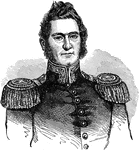
Charles Scott Todd
Charles Scott Todd (January 22, 1791 – May 17, 1871) was a United States army officer and government…
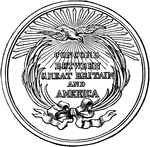
Medal Commemorative of the Treaty of Peace (Back)
A medal commemorative of the Treaty of Ghent ending the War of 1812.
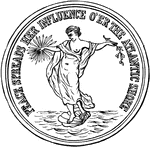
Medal Commemorative of the Treaty of Peace (Front)
A medal commemorative of the Treaty of Ghent ending the War of 1812.
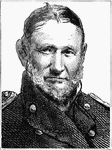
David Emanuel Twiggs
David Emanuel Twiggs (1790 – July 15, 1862) was a United States soldier during the War of 1812…
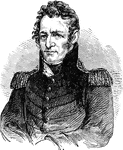
Solomon Van Rensselaer
Solomon Van Vechten Van Rensselaer (August 6, 1774 – April 23, 1852) was an United States Representative…

